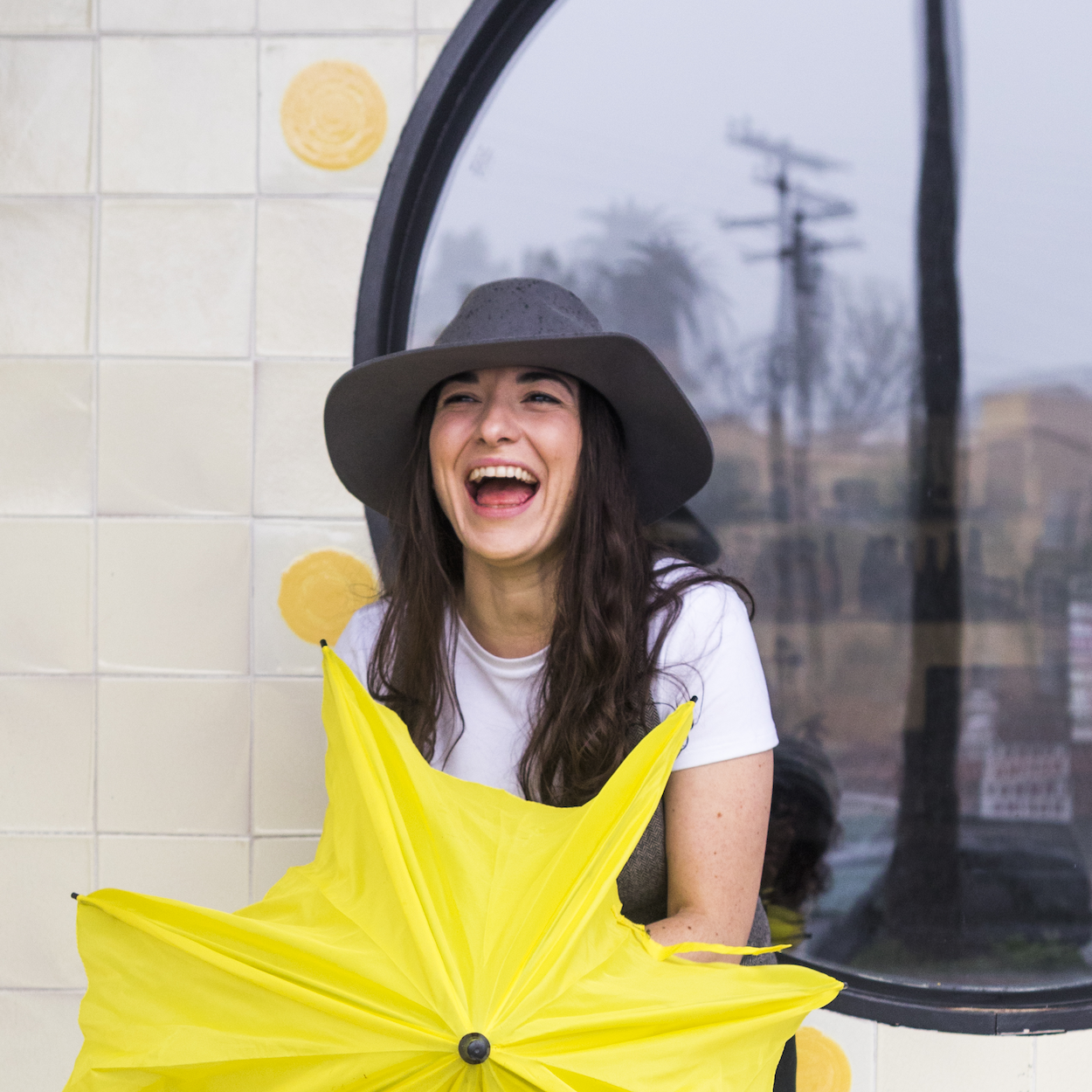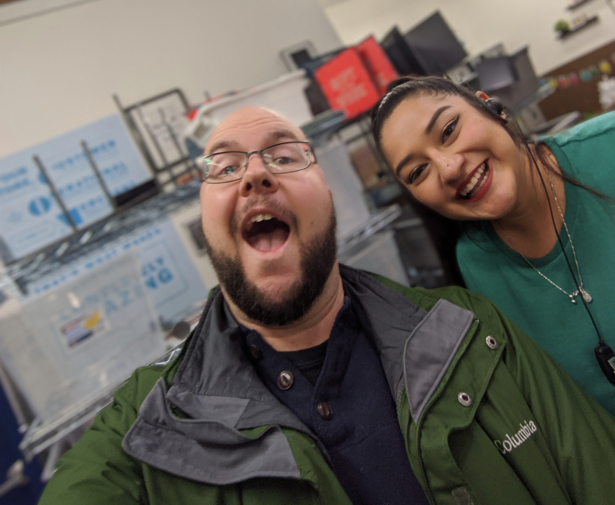
Bringing Joy To The World
From a hopeless depression, a woman forges an uplifting mission
Partly as a result of a childhood trauma, Maya Sterin experienced acute depression as a teenager and young adult. “When I was 17, after a suicide attempt, I was diagnosed finally by a professional,” she said recently. “I went to a psychoanalyst and she said, ‘This is what it’s going to be, this is how your brain works, it’s deficient, it’s not necessarily going to get better, so buckle up.’ I don’t remember the exact words. But that just felt so wrong to me. Fortunately for me, I’m an irreverent person and always have been, so I was like, I don’t believe you.”
“Prior to that, I was just in a place of total numbness,” Sterin recalls. “After that diagnosis, during the conversation I was so enraged. I left being surprised by the visceralness of the rage. I was like, Well, this is different. I can feel something. I don’t want to feel this all the time, but I can feel something.”
By her early 20s, though, Sterin was still suicidal. “I wanted very much to not be living the way I was living anymore,” she says. But in exploring her condition, she had read studies on neuroplasticity—the idea that the brain can change its wiring in response to new stimuli or behaviors—and the concept gave her a glimmer of hope. She still planned to kill herself, but she decided she would wait three years first, until her 25th birthday. “I decided I’ll try all the things, and if I’m still this depressed, I gave it my best shot,” Sterin told Good Turns. She set out to exercise and meditate regularly, eat better, practice forgiveness and mindfulness, and a host of other prescriptions for a happier, more joyful life. “And at the end of three years, I was completely connected to my joy.”
“I’m kind of upset about what’s happening with self-care, so I’m very interested in sticking a pin in that balloon”
So connected, in fact, that Sterin started a business whose mission it is to help others find their joy. Now, five years later, she is spreading what she’s learned more widely. She is about to publish a free book on self-care, and occasionally offers her coaching in joy to arts groups and others on a pro bono basis.
“What inspires me most about this work is to disrupt happiness,” Sterin says. “Our culture demands us to be happy, and if we can’t fake it effectively, we have to at least pretend to be fine. And that’s really destructive. I definitely see a lot of people who are sad about not being happier.”
For Sterin, joy is different from happiness. “Joy is the human base-state of peaceful vitality, rooted in a deep sense of belonging in self, in community, and in the natural world,” she says. “You can be happy all the way to the bank, you can have focus on your personal immediate pleasure, but if those pleasures don’t bring you in relationship with community, you’re not thriving, and you’re deeply disconnected from your joy, and ultimately it will have health effects.”
While her business focuses mostly on coaching individuals in becoming connected to their joy, her work lately has increasingly been with groups—including an arts collective working to bring art to inner-city kids in Los Angeles that she is coaching on a pro bono basis. “What I’m doing is helping them to be a joy-based group,” Sterin says. “I’m doing the same assessments I do for individuals, but for every member of that group, there’s 40 of them, on the aggregate of their joy. So we have benchmark, and we’ll check in every six months, and we’ll do workshops in between. The goal is to have that group be able to take their joy work into the art projects that they’ll be doing with the kids.”
Sterin is also working on a book about self-care that she hopes to make available for free on her birthday, March 20. (You can subscribe to her mailing list to be notified when it comes out.) “I’m actually kind of upset about what’s happening with self-care,” she told Good Turns recently. “Self-care is not particularly glamorous. It’s really about growing up and successfully nuturing and taking care of yourself. But it’s been commoditized by a lot of luxury brands and skin care and bath bombs and $20 yoga classes. And if you’re not rich, it’s very difficult to have access to that kind of presumed self-care, and so I’m very interested in sticking a pin in that balloon.”
“The book pulls from my research as far as what are joy-based ways to take care of yourself,” she says. That includes everything from prioritizing sleep to staying hydrated to practicing meditation and prayer (those are for extra credit, Sterin says), and being vulnerable in relationships. This last skill can be as simple a checking in with a friend. “Our culture, particularly American culture, trades in vagueness. We make a lot of assumptions about what other people are feeling and what their words mean. We think, just because we’re familiar with a word, that we know what they mean. If I told you that I was sad, all you can pull from is your understanding of what sad means to you and what it feels like in your body. When you build the skill of intimacy and checking in, you learn a lot about yourself and how correct your assumptions are. You’re also building trust with the other person that you care. It’s so common that somebody could just ask, How are you? and they could be walking right past you.”
Such skills are especially important, Sterin says, because of the extent to which joy depends on community. Good Turns is just grateful that Sterin is a part of our community. We wish her—and you—much joy.
Posted February 15, 2019





